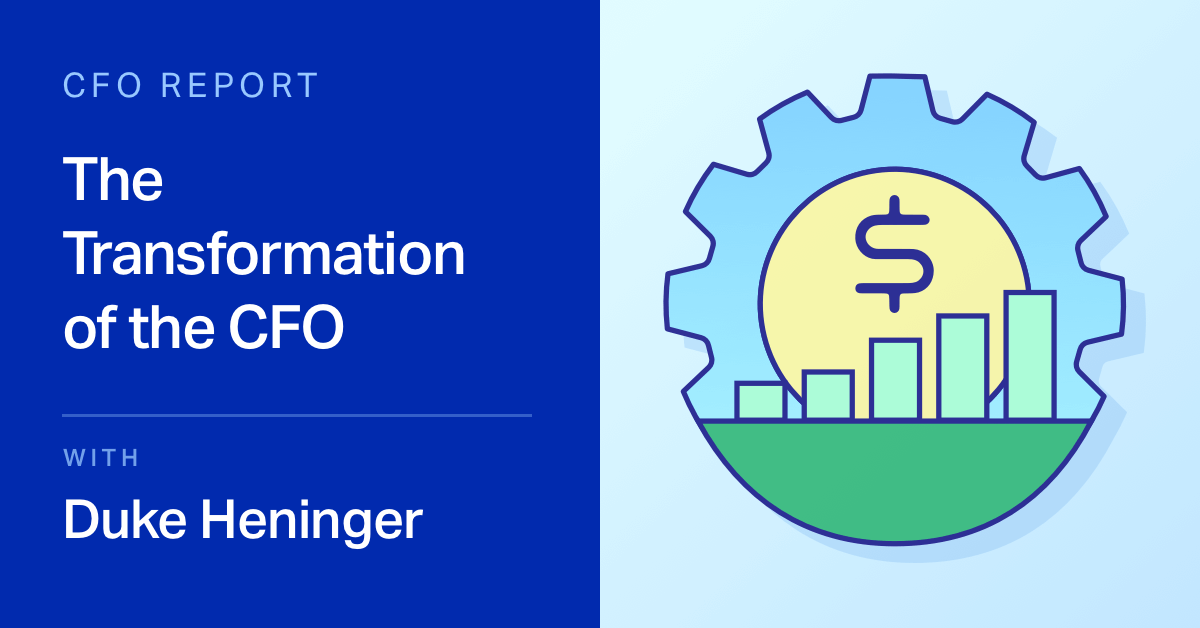The great resignation is weighing heavily on companies, and CFOs must help their businesses adapt to disruption once again. According to the U.S. Department of Labor, in 2021, there were nearly 10.9 million job openings, with 4.3 million people leaving their jobs in December alone.
To help us dive deeper into this topic, we connected with Robert Matitia, the Founding Partner and CEO of RSMatitia CFO Group. During the past two years, the RSMatitia CFO Group has been helping companies navigate the operational complexities and staffing challenges brought on by the pandemic. Robert is an expert in human capital consulting and recruiting, with first-hand insight into industries varying from healthcare, non-profit, manufacturing, consumer products, and more. He is also a CPA and former CFO with decades of experience managing large-scale financial operations, including an $85 million integrated senior living facility.
In this month’s CFO Report, we partnered with Robert to explore topics including the state of the workforce, improving satisfaction for finance professionals, attracting top talent, and the future of work.
The Changing Workplace
Turnover for many businesses is at an all-time high. Microsoft’s 2021 Work Trend Index shows that 41% of the workforce is considering leaving a job within the year. Finance teams know all too well that fatigue and burnout can result from an ever-growing task-list and constant reprioritization of work. The pandemic has transformed the way work is accomplished, and for many productivity is concealing high burnout levels.
Data shows that weekly meeting times have increased 148%, and the amount of emails received is up by 40.6 billion. On top of continued disruptions and widespread uncertainty, intense workdays have left many employees feeling disconnected from their employers. To avoid disruption due to lack of staffing, CFOs must act fast to retain their employees and compete for top talent.
Flexible Work Is the New Normal
The data is clear: employees want more flexibility and autonomy over how they work. More than 70% of employees desire remote work options, while others crave in-person time with their teams. To support hybrid work models, 66% of business leaders confirmed that they are making efforts to redesign their office spaces.
“In March of 2020, we started to see the impacts of the unexpected pandemic. Many of my clients put a freeze on recruiting and hiring. The pandemic pushed business leaders who were firm on having work done in the office into remote environments. Remote work proved to be positive for most in maintaining business continuity. As the world reopened, many leaders who were once against remote working started to embrace the idea that remote work environments could be successful. During their time remote, businesses established digital tools and processes that ensured productivity. Large entities minimized costs by reducing real estate space and taking back-office functions like accounting fully remote or hybrid. There was a huge shift in mindset. Though, for those who did not evolve digitally during that time, I see them struggling to attract and retain talent now. Professionals are looking for modern management styles who understand the pressures of the past two years and are open to the possibilities of remote work”, says Robert.
How Companies Can Competitively Attract Top-Talent
Hiring and retaining talent in 2022 is about more than just salary and benefits. Over the past year, work has undergone a complete shift. Employee expectations are changing. People are looking for purpose-driven roles that make them feel a part of something valuable. Corporations need to redefine employee satisfaction and engagement to include more collaborative work and learning experiences. Employees need the opportunity for true career advancement, in a flexible way.
“From my experience, it is unlikely that a finance professional who is employed and happy where they are will leave their position for just a pay increase. It is hard to recruit someone who is fulfilled by their work and genuinely enjoys their leadership. The candidates I see jumping ship are leaving for more ownership over their work and freedom in how their work is done. They want better management, career advancement, and the work-life balance they are not getting from their current company. Ultimately, I have found that workplace satisfaction is vital for employee retention, and that satisfaction is usually highly dependent on company culture and management styles”.
Top Skills Employers Are Looking for in 2022
Organizations look to the finance function for data-driven insight to support business decisions, which makes digital aptitude an essential skill for finance professionals. Finance and accounting specialists must be able to complete tasks that involve finance technology, interpreting large data sets, and generating comprehensive reporting. Many CFOs are experiencing difficulty sourcing qualified talent, with 93% reporting they are struggling to find qualified candidates for their open accounting and finance roles.
“Many of my clients want prospects with experience in leveraging automation and implementing new systems. For example, we have a client recruiting for a CFO role, and the company's board has requested a candidate who is digitally skilled and forward-focused. They want a senior finance professional who can source and implement a new accounting system to automate the paper-pushing their team is currently doing.”
Leadership must consider what offering a flexible work environment means for the tools they need to keep a virtual team connected. Creating a flexible workforce means becoming tech-dependent, and finance leaders have the rare opportunity to embrace technology in their operations.
“Being cutting-edge and digitally innovative can be highly attractive to candidates. Sometimes finance teams use automation technology that is not fully automated, creating more work on the backend. When processes are fully automated and reduce time-consuming tasks, this is a competitive advantage for companies looking to attract talent. What we have learned from the pandemic is that you do not have to be in the office to handle much of the grunt work that bogs down accounting teams ”, Robert says.
The latest automation technology supports digital finance and accounting teams by creating a centralized source of truth in real-time. Team members can leverage technology like automated invoice processing to reduce their manual workload, eliminate human error, and accelerate invoice turnaround to pay vendors more quickly.
The Silver Lining of the Great Resignation
Recruiting and retaining staff is a human issue. Leadership can navigate staffing issues by focusing on serving their employees, starting with listening to what they want. Use the feedback to implement changes that create positive experiences for employees.
“From my perspective, the silver lining is the shift in corporate attitudes. Future-oriented leaders are shifting from authoritative management to more collaborative and coaching styles. Business decision-makers understand they can have discipline and accountability while also giving employees flexibility. Rather than relating productivity to bodies in the office, leaders can reference productivity metrics. For example, measuring efficiency by how many accounts payable invoices were processed within a timeframe. Moving forward, I believe it will be more about measuring productivity and less about micromanaging people. We no longer need finance teams spending hours pushing paper. There will be much more of a work-life balance for finance professionals.”






